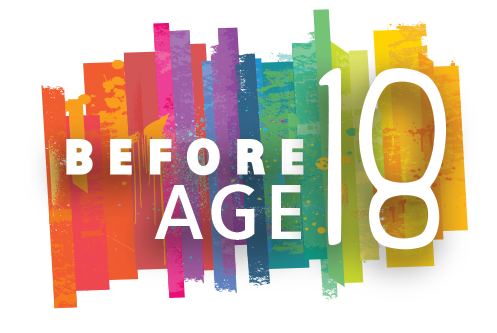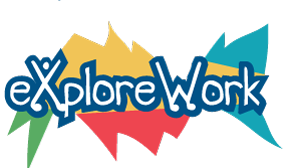Education and Post-Secondary Training for Youth
Counseling on opportunities for enrollment in comprehensive transition or postsecondary educational programs
To improve employment outcomes and increase opportunities for students with disabilities to access 21st century jobs, it is essential that students and their family members are provided information and guidance on a variety of post-secondary education and training opportunities.
These services may include information on course offerings, career options, types of academic and occupational training needed to succeed in the workplace, and postsecondary opportunities associated with a career field or pathways.
It may also include advising students and family members on academic curricula, college application and admissions processes, completing the Free Application for Federal Student Aid (FAFSA), and resources that may be used to support individual student success in education and training, to include disability support services.
Strategies for Smooth Transition from High School to Post-Secondary Education
Individualized student strategies to support a smooth transition from high school to postsecondary education include:
- document academic accommodations
- advocate for needed accommodations & services
- identify interests, abilities, talents, needs, learning style preferences and goals
- promote use of executive function skills
- assist with researching career & postsecondary education options
- promote participation in postsecondary education preparation classes, etc.
- connect to postsecondary education resources/ services/websites
- promote use of self-advocacy skills
- assist with application/ enrollment process
- identify financial aid options
- take career vocational assessments
- familiarize with education and vocational laws
- identify technology needs
- identify admission tests accommodations
- attend college fairs & tours
- apply for Vocational Rehabilitation services, if eligible
- provide postsecondary education information to family members
- access services & supports from developmental/ intellectual disabilities service agency, if eligible
Post-Secondary Options
The post-secondary options that should be explored include:
- Community Colleges (AA/AS degrees, certificate programs and classes)
- Universities (Public and Private)
- Career pathways related to workshops/training programs
- Trade/Technical Schools
- Military
- Post-secondary programs at community colleges and Universities for students with intellectual and developmental disabilities
- Adult education and continuing education programs
- Life skills programs in higher education settings
- Apprenticeship programs
- Employer-provided training programs
- Pre-apprenticeship programs (e.g. Job Corps)
Post-Secondary Counseling Activities*
Here are some ideas for completing work-based learning activities with individual students or with a group of students.
Individual
- Learn about accommodations for college entrance exams
- Develop ‘class shadows’ in college and vocational training classrooms
- Advise students and parents or representatives on academic curricula
- Provide information about college application and admissions processes
- Complete the Free Application for Federal Student Aid (FAFSA) with student
- Provide resources that may be used to support individual student success in education and training (i.e., disability support services)
Group
- Tour university and community college campuses and talk to disability services on each campus
- Plan a visit to local Job Corps campus
- Discuss the difference between special education services in K-12 education and post-secondary education disability services
- Discuss adult services and benefits that can be used during college attendance and provide information on:
- course offerings;
- career options;
- types of academic and occupational training needed to succeed in the workplace;
- post-secondary opportunities associated with career fields
* Source: CRP Pre-ETS Guidebook: Strategies for Community Rehabilitation Providers to Collaborate on Pre-ETS from the Workforce Innovation Technical Assistance Center (WINTAC)
Exploring Career Clusters
Being able to have high expectations and explore the possibilities is important for youth. When it comes to making decisions about future career paths finding out about individual skills, talents and abilities and skills learned from work-based learning experiences is important. Tapping into information about job market realities and projections is also essential for learning about job growth and understanding skills needed and training and education required to work in a particular job or field.
The following 16 broad categories include virtually all occupations from entry through professional levels. They include those that require varying degrees of education and training, as seen by the sample careers within each cluster:
- Agricultural & Natural Resources
- Business and Administration
- Education and Training
- Health Science
- Human Services
- Law and Public Safety
- Government and Public Administration
- Scientific Research/ Engineering
- Arts, A/V Technology & Communications
- Architecture and Construction
- Finance
- Law & Public Safety
- Hospitality & Tourism
- Information & Technology
- Manufacturing
- Retail/Wholesale Sales & Service
- Transportation, Distribution & Logistics
Choosing a career requires student exploration and planning. It is important that students connect the present to the future. It is essential for them to see how skill development and knowledge relate to future opportunities in postsecondary education settings and employment.
Tools
Following are some tools and resources to assist you with your career planning activities.
Featured Resources

Before Age 18
For youth with disabilities and their families, get ready to consider choices, explore the possibilities, and take action now to prepare for age 18! Before Age 18 Website

Explore-Work.com Training
Online training to help youth explore their future -- follows the five Pre-ETS training topics. Explore-Work Website
Training
- My Next Move from the S. Department of Labor, Employment & Training Administration, and developed by the National Center for O*NET Development
- U.S. Department of Labor: Career Clusters: framework used by many schools and state agencies to organize career information including employment and wage data, education and training assignments, and projected job openings.
- Youth Activity: School Beyond High School from Explore-Work.com
- Youth Action Steps: Education from Before Age 18
Related Resources
- Postsecondary Education Program Resources from the Workforce Innovation Technical Assistance Center (WINTAC)
- CRP Pre-ETS Guidebook: Strategies for Community Rehabilitation Providers to Collaborate on Pre-ETS from the Workforce Innovation Technical Assistance Center (WINTAC)
- National Technical Assistance Center on Transition (NTACT)
- For Job Seekers Who Are Visually Impaired from the American Printing House for the Blind: Career Connect

